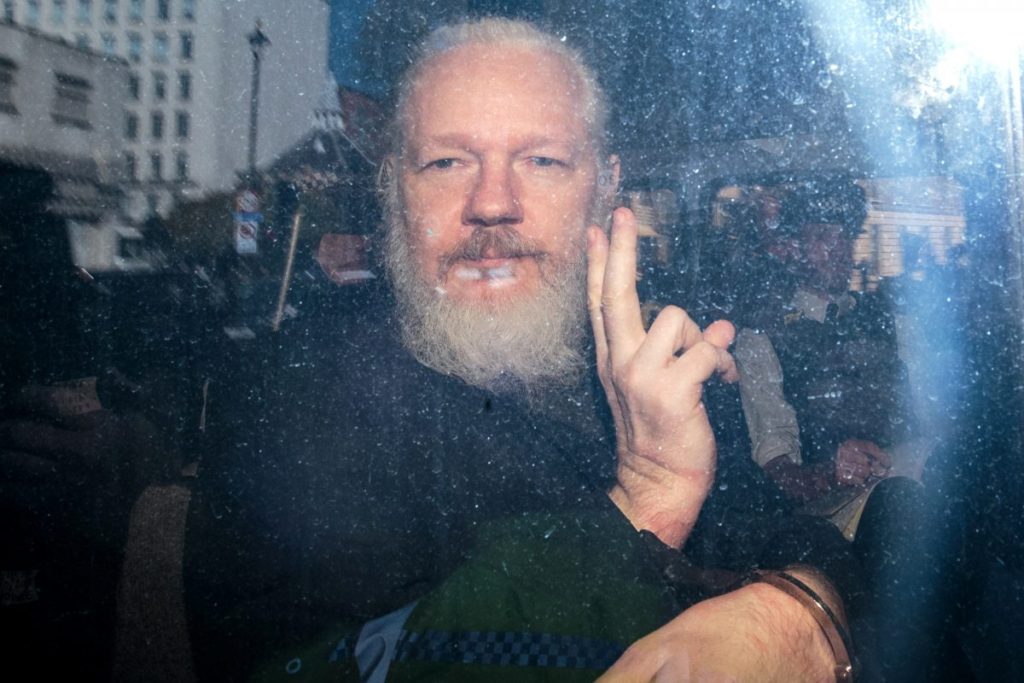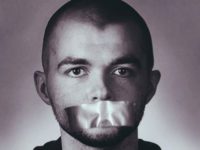
- Thursday morning, Julian Assange was arrested and taken by force from the Ecuadorian Embassy in London after Ecuador revoked his political asylum.
- Assange, an Australian citizen, is being charged with one single count of computer intrusion conspiracy that dates to 2010 and faces extradition to the United States and up to 5 years in prison.
- After having spent the last 7 years inside the Ecuadorian Embassy to avoid extradition to Sweden over sexual assault allegations (which Assange has always denied), a seven-year diplomatic stalemate has come to an end.
- The arrest sparked fierce debate over Assange’s future; while the government defended the arrest over breaching bail as evidence that “no-one is above the law,” free speech and civil liberties groups condemned the US extradition request.
Wikileaks founder Julian Assange was arrested in dramatic fashion Thursday morning and dragged out of the Ecuadorian embassy in London carrying a book titled “History of the National Security State,” by Gore Vidal. One quote from the book reads, “The people have no voice because they have no information.”
Journalist Cassandra Fairbanks, one of Assange’s biggest supporters, raised funds through a Gofundme account last week to travel to London to cover Assange’s arrest after hints of his imminent arrest began circulating on the internet. Fairbanks tweeted out an opinion piece that argued if Assange is convicted, it would “criminalize the news-gathering process.”
One America News Network reporter and veteran Jack Posobiec took to Periscope arguing that “the one thing no one is talking about is the timing of Assange’s arrest,” which he considers is a signal that they are “going after Assange because they couldn’t get Trump [with the Mueller Investigation].”
Posobeic also alluded the fact that the Trump Administration had been working on a deal with Assange for immunity in exchange for not releasing all of Vault 7. FBI Director at the time, James Comey, had a hand in squashing the already agreed-to immunity deal, which Assange caught wind of, and in response released the full Vault 7 documents.
It was soon after the release that the CIA called Wikileaks a hostile intelligence service, but no one from our government ever references the fact that Comey had reneged on the immunity deal with Assange first, which triggered the release. Why Comey squashed the deal in the first place is still unknown.
Another mystery about Assange is why the Special Counsel never questioned him or Wikileaks about the source of the (DNC) emails they had published leading up to the 2016 Presidential Election. Our government was being told that the emails were hacked, but Assange always claimed the emails were given to him.
Author and filmmaker Mike Cernovichtweeted out that the real reason Assange was arrested is because of Wikileaks releasing the DNC emails.
Lawyer and President of American watch-dog group Judicial Watch Tom Fitton also weighed in on Twitter:
Judge Napolitano, Fox News contributor, commented that Fox News could be arrested for doing the same thing Assange and Wikileaks has done and that he believes Assange “is a hero.”
Early Saturday morning, hacktivists hijacked the Central Bank of Ecuador, Ministry of Interior, Ecuador Assembly in UK and the Government of Ecuador, knocking them offline in retaliation for the arrest of Julian Assange.
It is not yet known whether Assange will be extradited back to the U.S. to face charges or not, but this is a fast moving story. We will leave you with some food for thought from hip-hop artist and activist An0maly.







